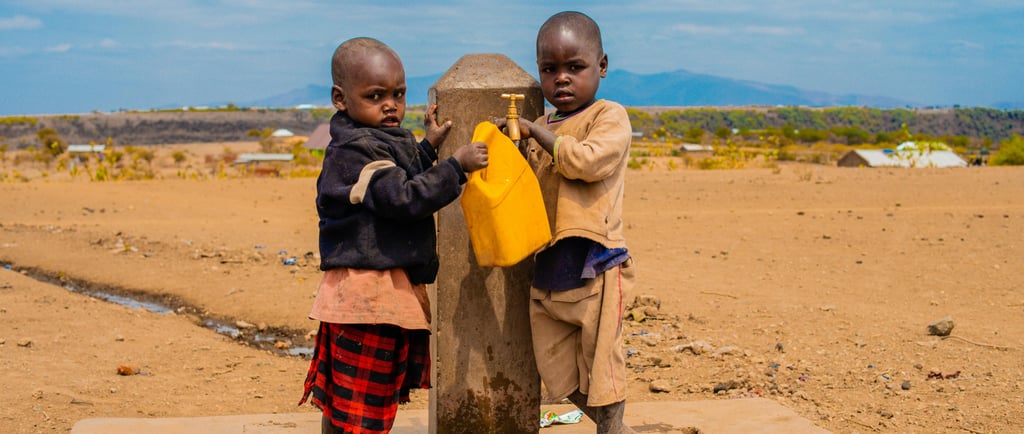Climate Change and Community Resilience in Koboko District, Uganda
Talking About Climate Change and Community Resilience in Koboko District, Uganda
DONNEEMART



Introduction
Climate change is one of the most pressing global challenges of the 21st century, disproportionately affecting vulnerable populations, particularly in sub-Saharan Africa. Koboko District in Uganda has begun to experience the adverse effects of climate change, including unpredictable rainfall patterns, prolonged droughts, soil degradation, and increased food insecurity. These environmental changes threaten not only the livelihoods of local farmers but also the delicate balance between host communities and refugees who rely on the same natural resources. This study investigates the local perceptions of climate change, its impact on agriculture and natural resource management, and community-level responses aimed at fostering resilience.
Research Questions:
How is climate change perceived and experienced by communities in Koboko District?
What are the specific impacts of climate change on agriculture and natural resources?
What adaptive strategies are communities employing to cope with environmental changes?
Significance:
This research contributes to understanding grassroots adaptation to climate change, offering insights that can guide local policy, development planning, and climate-resilient interventions.
Methods
The study employed a qualitative research design. Data were collected through in-depth interviews and observations within various communities in Koboko District. Participants included local farmers, community leaders, and environmental activists who shared personal experiences and collective strategies for dealing with environmental stressors. Thematic analysis was used to identify recurring patterns related to perception, impact, and adaptation.
Ethical Considerations: Informed consent was obtained from all participants, and identities were anonymized to ensure confidentiality.
Results
Perceptions of Climate Change:
Most respondents associated climate change with rising temperatures, irregular rainfall, drying water sources, and reduced soil fertility. Many expressed concern about the unpredictability of seasons, which complicates traditional farming calendars.
Impacts on Agriculture and Natural Resources:
Crop yields have significantly declined due to extended dry spells and erratic rainfall.
Livestock productivity has decreased with limited pasture and water sources.
Communities have observed increased deforestation and soil erosion, exacerbated by human activities like charcoal burning and refugee settlement expansion.
Community Adaptation Strategies:
Shifting planting seasons and adopting drought-resistant crop varieties.
Water harvesting techniques, such as constructing small dams and digging water pans.
Community sensitization programs on tree planting and environmental conservation.
Collaborative efforts between local government, NGOs, and community groups to promote sustainable farming practices and restore degraded lands.
Discussion
The findings affirm that climate change poses a direct threat to food security and livelihoods in Koboko District. However, the community's proactive adaptations demonstrate resilience and agency. These strategies align with other regional studies that emphasize local knowledge and participatory environmental management. Challenges remain, particularly in accessing climate-smart technologies and securing funding for larger-scale environmental restoration projects. The role of institutional support is critical in scaling up successful local initiatives and integrating them into district-level planning.
Limitations:
This study's scope was limited to selected communities within Koboko District. A broader, quantitative approach may offer a more comprehensive understanding of the extent of climate change impacts.
Conclusion
Climate change in Koboko District is a lived reality that manifests in declining agricultural productivity, environmental degradation, and strained natural resources. Despite these challenges, local communities are adopting innovative and traditional methods to adapt and build resilience. Strengthening these efforts through policy support, capacity building, and investment in sustainable technologies is essential for long-term climate resilience.
Abstract
This research explores the impact of climate change on communities in Koboko District, Uganda, focusing on agricultural disruption, natural resource degradation, and adaptive strategies. Through qualitative interviews, it identifies community perceptions of climate change and highlights locally-driven responses such as drought-resistant farming, water harvesting, and reforestation. While challenges persist, the study underscores the resilience of communities and the need for institutional support to enhance adaptation and sustainability. These findings are relevant for climate policy and rural development planning.
Service
Empowering communities through faith and innovation.
Connect
Subscribe for our newsletter
info@donneemart.online
+256-774-143-794
© 2025. All rights reserved.
